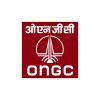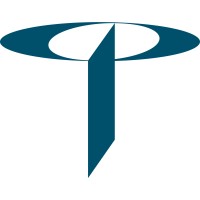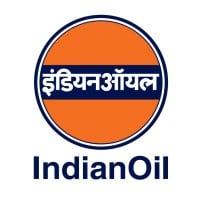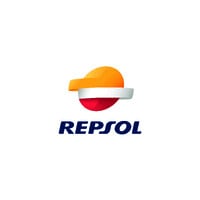
Oil and Natural Gas Corporation Ltd Company Cyber Security Posture
ongcindia.comMaharatna ONGC is the largest producer of crude oil and natural gas in India, contributing around 70 per cent of Indian domestic production. The crude oil is the raw material used by downstream companies like IOC, BPCL, HPCL to produce petroleum products like Petrol, Diesel, Kerosene, Naphtha, Cooking Gas-LPG. ONGC is India’s Top Energy Company and ranks 14th among global energy majors (Platts). It is the only Indian company to figure in Fortune’s ‘Most Admired Energy Companies’ list. ONGC ranks 226th overall in Forbes Global 2000. Acclaimed for its Corporate Governance practices, Transparency International has ranked ONGC 26th among the biggest publicly traded global giants. It is most valued public enterprise in India, and one of the highest profit-making and dividend-paying. ONGC has a unique distinction of being a company with in-house service capabilities in all areas of Exploration and Production of oil & gas and related oil-field services. Winner of the Best Employer award, a dedicated team of over 25,000 professionals toil round the clock in challenging locations. ONGC is an integrated energy company with interests in upstream, midstream and downstream sector of the hydrocarbon value chain, renewables, LNG, Power generation, petrochemicals and Value Added Products. ONGC's wholly-owned subsidiary Navratna ONGC Videsh Limited (OVL) is the biggest Indian multinational in the energy space, participating in 32 oil and gas properties in 15 countries. ONGC's subsidiary Mangalore Refinery and Petrochemicals Limited (MRPL) is a Schedule ‘A’ Miniratna, with a single-location refining capacity of 15 million tons per annum. ONGC subsidiary HPCL is a Maharatna CPSE, and has the second largest share of product pipelines in India with a pipeline network of more than 3370 kms for transportation of petroleum products and a vast marketing network consisting of 14 Zonal offices and 133 Regional Offices.
ONGCL Company Details
oilandnaturalgascorporation
10,001+ employees
519567
211
Oil and Gas
ongcindia.com
Scan still pending
OIL_3310594
In-progress
Between 800 and 900
This score is AI-generated and less favored by cyber insurers, who prefer the TPRM score.
 ONGCL Global Score
ONGCL Global Score.png)

Oil and Natural Gas Corporation Ltd Company Scoring based on AI Models
| Model Name | Date | Description | Current Score Difference | Score |
|---|---|---|---|---|
| AVERAGE-Industry | 03-12-2025 | This score represents the average cybersecurity rating of companies already scanned within the same industry. It provides a benchmark to compare an individual company's security posture against its industry peers. | N/A | Between 800 and 900 |
Oil and Natural Gas Corporation Ltd Company Cyber Security News & History
| Entity | Type | Severity | Impact | Seen | Url ID | Details | View |
|---|---|---|---|---|---|---|---|
| ONGC | Vulnerability | 25 | 6/2025 | OIL620062825 | Link | ||
Rankiteo Explanation : Attack without any consequences: Attack in which data is not compromisedDescription: A blowout occurred at Well No RDS 147A in the Rudrasagar oil field, Assam, operated by SK Petro Services on behalf of ONGC. The incident started on June 12 and was capped on June 27. Over 330 families were evacuated, and the state government provided relief and ₹25,000 aid to each affected family. The blowout caused significant concern and required extensive crisis management efforts. | |||||||
Oil and Natural Gas Corporation Ltd Company Subsidiaries

Maharatna ONGC is the largest producer of crude oil and natural gas in India, contributing around 70 per cent of Indian domestic production. The crude oil is the raw material used by downstream companies like IOC, BPCL, HPCL to produce petroleum products like Petrol, Diesel, Kerosene, Naphtha, Cooking Gas-LPG. ONGC is India’s Top Energy Company and ranks 14th among global energy majors (Platts). It is the only Indian company to figure in Fortune’s ‘Most Admired Energy Companies’ list. ONGC ranks 226th overall in Forbes Global 2000. Acclaimed for its Corporate Governance practices, Transparency International has ranked ONGC 26th among the biggest publicly traded global giants. It is most valued public enterprise in India, and one of the highest profit-making and dividend-paying. ONGC has a unique distinction of being a company with in-house service capabilities in all areas of Exploration and Production of oil & gas and related oil-field services. Winner of the Best Employer award, a dedicated team of over 25,000 professionals toil round the clock in challenging locations. ONGC is an integrated energy company with interests in upstream, midstream and downstream sector of the hydrocarbon value chain, renewables, LNG, Power generation, petrochemicals and Value Added Products. ONGC's wholly-owned subsidiary Navratna ONGC Videsh Limited (OVL) is the biggest Indian multinational in the energy space, participating in 32 oil and gas properties in 15 countries. ONGC's subsidiary Mangalore Refinery and Petrochemicals Limited (MRPL) is a Schedule ‘A’ Miniratna, with a single-location refining capacity of 15 million tons per annum. ONGC subsidiary HPCL is a Maharatna CPSE, and has the second largest share of product pipelines in India with a pipeline network of more than 3370 kms for transportation of petroleum products and a vast marketing network consisting of 14 Zonal offices and 133 Regional Offices.
Access Data Using Our API

Get company history
.png)
ONGCL Cyber Security News
Addressing Cybersecurity Threats in the Oil & Gas Industry
Presidential Policy Directive 21 identifies the energy sector as uniquely critical because it provides an enabling function across all ...
Enhancing process safety
Learn about ExxonMobil's objective to help protect our people, communities, and the environment by successfully managing and enhancing process safety.
Dragos Announces OT Cybersecurity Community Defense Program in Canada for Small Water, Electric, and Natural Gas Providers
Dragos Inc., the global leader in cybersecurity for operational technology (OT) environments, today announced the Dragos Community Defense ...
Oil And Gas Security Market Size And Share Report, 2030
End User Insights. Based on end users, the market is segmented into oil and gas companies, pipeline operators, drilling contractors, energy infrastructure ...
Biggest Cybersecurity Attacks in Oil And Gas Extraction Industry (2023-2024)
The oil and gas extraction industry, a critical sector for global energy supply, has become a prime target for cyberattacks due to its ...
Pakistan-Linked Hackers Expand Targets in India with CurlBack RAT and Spark RAT
A threat actor with ties to Pakistan has been observed targeting various sectors in India with various remote access trojans like Xeno RAT, Spark RAT, and a ...
Cybersecurity in Energy Infrastructure Market Size | CAGR of 15%
According to cybermagazine research, 42% of critical infrastructure organisations, including those in the energy sector, experienced cyber breaches in 2024.
CISA Warns About Unsophisticated Hackers Compromising U.S. Critical Infrastructure
A multi-agency joint cybersecurity advisory warns about “unsophisticated” hackers targeting critical infrastructure organizations, specifically ...
GlobalData: cyberattacks a growing threat for oil and gas
Claroty's Andrew Lintell discusses the growing cyber threat to the oil and gas sector, who's behind attacks and what firms can do.

ONGCL Similar Companies

Transocean
Transocean is a leading international provider of offshore contract drilling services for oil and gas wells. The company specializes in technically demanding sectors of the global offshore drilling business with a particular focus on deepwater and harsh environment drilling services, and believes th

Weatherford
Weatherford International plc (Nasdaq: WFRD) is a leading global energy services company. Operating in approximately 75 countries, the Company answers the challenges of the energy industry with its global talent network of approximately 17,000 team members and approximately 350 operating locations,

Organisation Ourhoud
Sonatrach (Société Nationale pour la Recherche, la Production, le Transport, la Transformation, et la Commercialisation des Hydrocarbures s.p.a.) is an Algerian government-owned company formed to exploit the hydrocarbon resources of the country. Its diversified activities cover all aspects of Oil &

Indian Oil Corp Limited
As India's flagship national oil company in the downstream petroleum sector, IndianOil has been fuelling the energy demands of India for over five decades. With a 33,000-plus work-force, extensive refining, distribution & marketing infrastructure and advanced R&D facilities, lndianOil plays a signif

Aker Solutions
Aker Solutions delivers integrated solutions, products and services to the global energy industry. We enable low-carbon oil and gas production and develop renewable solutions to meet future energy needs. By combining innovative digital solutions and predictable project execution we accelerate the tr

Repsol
At Repsol, we are at the forefront of the energy sector to build the future of energy with innovation and sustainability. We are a strong multienergy company that creates value in an integrated, diversified, and sustainable way to promote progress in society. We leverage our past experience to be pr

Frequently Asked Questions
Explore insights on cybersecurity incidents, risk posture, and Rankiteo's assessments.
ONGCL CyberSecurity History Information
How many cyber incidents has ONGCL faced?
Total Incidents: According to Rankiteo, ONGCL has faced 1 incident in the past.
What types of cybersecurity incidents have occurred at ONGCL?
Incident Types: The types of cybersecurity incidents that have occurred incident Vulnerability.
How does ONGCL detect and respond to cybersecurity incidents?
Detection and Response: The company detects and responds to cybersecurity incidents through third party assistance with International well control experts and containment measures with Capping the blowout.
Incident Details
Can you provide details on each incident?

Incident : Well Blowout
Title: ONGC Well Blowout in Assam
Description: Oil and Natural Gas Corporation Limited (ONGC) experienced a well blowout at Well No RDS 147A, Rig No SKP 135, located in the Rudrasagar oil field at Barichuk, Bhatiapar, Sivasagar district in Assam. The blowout occurred on June 12 and was successfully capped on June 27.
Date Detected: 2023-06-12
Date Publicly Disclosed: 2023-06-27
Date Resolved: 2023-06-27
Type: Well Blowout
What are the most common types of attacks the company has faced?
Common Attack Types: The most common types of attacks the company has faced is Vulnerability.
Impact of the Incidents
Which entities were affected by each incident?

Incident : Well Blowout OIL620062825
Entity Type: Public Sector Undertaking
Industry: Energy
Location: Sivasagar district, Assam, India
Response to the Incidents
What measures were taken in response to each incident?

Incident : Well Blowout OIL620062825
Third Party Assistance: International well control experts
Containment Measures: Capping the blowout
How does the company involve third-party assistance in incident response?
Third-Party Assistance: The company involves third-party assistance in incident response through International well control experts.
Data Breach Information
How does the company handle incidents involving personally identifiable information (PII)?
Handling of PII Incidents: The company handles incidents involving personally identifiable information (PII) through was Capping the blowout.
References
Where can I find more information about each incident?

Incident : Well Blowout OIL620062825
Source: PTI
Where can stakeholders find additional resources on cybersecurity best practices?
Additional Resources: Stakeholders can find additional resources on cybersecurity best practices at and Source: PTI.
Post-Incident Analysis
What were the root causes and corrective actions taken for each incident?

Incident : Well Blowout OIL620062825
Root Causes: Perforation operation for zone transfer on an old, non-producing crude well
What is the company's process for conducting post-incident analysis?
Post-Incident Analysis Process: The company's process for conducting post-incident analysis is described as International well control experts.
Additional Questions
Incident Details
What was the most recent incident detected?
Most Recent Incident Detected: The most recent incident detected was on 2023-06-12.
What was the most recent incident publicly disclosed?
Most Recent Incident Publicly Disclosed: The most recent incident publicly disclosed was on 2023-06-27.
What was the most recent incident resolved?
Most Recent Incident Resolved: The most recent incident resolved was on 2023-06-27.
Response to the Incidents
What third-party assistance was involved in the most recent incident?
Third-Party Assistance in Most Recent Incident: The third-party assistance involved in the most recent incident was International well control experts.
What containment measures were taken in the most recent incident?
Containment Measures in Most Recent Incident: The containment measures taken in the most recent incident was Capping the blowout.
References
What is the most recent source of information about an incident?
Most Recent Source: The most recent source of information about an incident is PTI.
What Do We Measure?
















Every week, Rankiteo analyzes billions of signals to give organizations a sharper, faster view of emerging risks. With deeper, more actionable intelligence at their fingertips, security teams can outpace threat actors, respond instantly to Zero-Day attacks, and dramatically shrink their risk exposure window.
These are some of the factors we use to calculate the overall score:
Identify exposed access points, detect misconfigured SSL certificates, and uncover vulnerabilities across the network infrastructure.
Gain visibility into the software components used within an organization to detect vulnerabilities, manage risk, and ensure supply chain security.
Monitor and manage all IT assets and their configurations to ensure accurate, real-time visibility across the company's technology environment.
Leverage real-time insights on active threats, malware campaigns, and emerging vulnerabilities to proactively defend against evolving cyberattacks.




